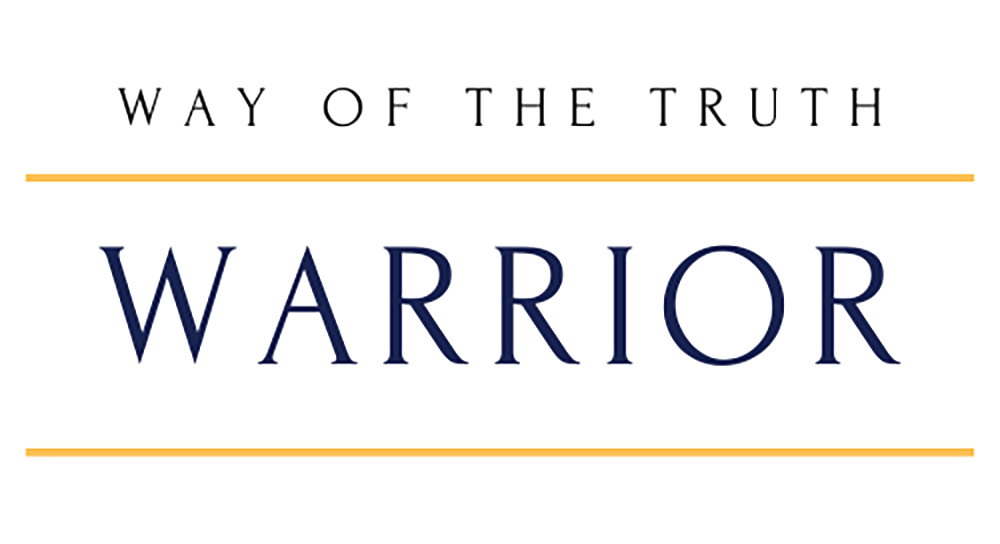Reality Check: Navigating the Complexities of Our World

1. The Illusion of Certainty
The first step in navigating the complexities of our world is recognizing the illusion of certainty. Human perception is limited, and our brains are wired to seek out patterns and make assumptions based on limited data. This can lead us to form biased opinions and beliefs that may not accurately reflect reality. It is important to question our own assumptions and be open to new ideas and perspectives. By acknowledging the limits of our own knowledge, we can begin to navigate the complexities of our world with greater clarity and humility.

2. The Nature of Truth
The Nature of Truth is a complex and multifaceted topic that has puzzled philosophers and scholars for centuries. At its core, truth is about understanding and accepting what is real and accurate. However, as humans, we often struggle to see beyond our own biases and limited perceptions, which can lead us astray from the true nature of reality.
One of the biggest challenges in determining truth is the subjective nature of our experiences. Different people may have vastly different interpretations of the same event or situation, making it nearly impossible to arrive at a consensus on what is truly accurate. This is why critical thinking is so important – it allows us to question our assumptions and evaluate evidence objectively.
Another factor that contributes to the complexity of truth is the role of language. Words and phrases can be ambiguous or misleading, leading us to draw conclusions that may not be supported by the facts. Additionally, our cultural background and upbringing can shape the way we understand and interpret the world around us, further complicating our ability to discern truth.
Ultimately, the pursuit of truth requires humility, openness, and a willingness to challenge our own beliefs. By embracing these qualities, we can begin to navigate the complexities of our world with greater clarity and accuracy.

3. The Impact of Technology
As technology continues to advance at an unprecedented pace, it is becoming increasingly clear that it has a profound impact on our lives and the way we perceive reality. From social media to artificial intelligence, technology is shaping the way we interact with each other and the world around us. However, this influence can be both positive and negative. On one hand, technology has the potential to connect people from all over the globe, fostering collaboration and innovation. On the other hand, it can contribute to feelings of isolation and disconnection, as well as the spread of misinformation and fake news. It is important to recognize the impact of technology and use it responsibly, while also being aware of its limitations and potential pitfalls.

4. The Power of Perspective
The Power of Perspective:
Our perception of reality is shaped by our unique experiences, beliefs, and biases. It is essential to understand the role of perspective in navigating the complexities of our world. By adopting a new perspective or learning from others, we can broaden our understanding and find solutions to problems that may have seemed insurmountable before. Empathy and openness to different viewpoints are key components of effective communication and conflict resolution. Recognizing the power of perspective allows us to navigate through life’s challenges with greater ease and grace.

5. Navigating Complexity
In a world filled with uncertainty and constant change, navigating complexity has become an essential skill for individuals and communities alike. Whether it’s dealing with complex relationships, navigating the workplace, or confronting social issues, the ability to effectively navigate complexity is crucial for success and well-being. In this section, we’ll explore strategies for navigating complex situations and the importance of seeking guidance and support when needed.

6. Balancing Reality and Hope
In life, it can be easy to get caught up in the pursuit of happiness and lose sight of the realities of the world around us. On the other hand, focusing solely on the negative aspects of reality can lead to despair and hopelessness. Finding a balance between these two extremes is crucial for navigating the complexities of our world.
One way to achieve this balance is through the practice of mindfulness. Mindfulness involves being present in the moment and paying attention to our thoughts and feelings without judgment. By cultivating mindfulness, we can develop a greater awareness of our emotions and gain insight into the underlying causes of our reactions. This can help us respond to difficult situations with greater clarity and compassion.
Another important aspect of balancing reality and hope is the practice of gratitude. Gratitude involves recognizing and appreciating the good things in our lives, even during difficult times. By focusing on what we are thankful for, we can shift our perspective and find hope in the midst of adversity.
Finally, it is important to seek out sources of support and guidance when navigating the complexities of our world. Whether it is through friends, family, or professionals, having a supportive network can provide us with the strength and encouragement we need to face challenges head-on.
Ultimately, finding balance between reality and hope requires ongoing reflection and self-awareness. It is only by being honest with ourselves about both the difficulties and joys of life that we can truly begin to navigate the complexities of our world with grace and resilience.

7. Coping with Change
Coping with change can be one of the most challenging aspects of navigating the complexities of our world. Change is a natural part of life, and yet it can often feel overwhelming and disorienting. Whether it’s a change in our personal lives or in the broader world around us, it’s important to find ways to cope with these changes and to build resilience in the face of uncertainty.
One of the key strategies for coping with change is to focus on what we can control. This means recognizing that we may not be able to control the external circumstances of our lives, but we can control our own thoughts, emotions, and actions. By focusing on what we can control, we can regain a sense of agency and empowerment in the face of change.
Another important strategy is to practice self-care. Change can be stressful and draining, so it’s important to take care of ourselves physically, emotionally, and mentally. This might involve practices like exercise, meditation, or spending time in nature. It can also mean seeking out support from friends, family, or mental health professionals when needed.
Finally, it’s important to remember that change is not always negative. Sometimes, change can bring new opportunities and growth. By approaching change with an open mind and a willingness to learn, we can find unexpected blessings in the midst of uncertainty.

8. The Role of Community
In a chaotic world, it can be easy to feel overwhelmed and alone. However, community plays a crucial role in helping us navigate the complexities of our reality. When we come together with others who share similar experiences or beliefs, we create a sense of belonging and connection that can provide comfort and support during difficult times.
Community can take many forms, from close-knit groups of friends and family to larger organizations and movements. Whether we are part of a religious group, a sports team, or a political organization, these connections can offer a sense of purpose and direction. They can also provide a platform for collective action and problem-solving, allowing us to work together towards common goals.
However, it is important to recognize that not all communities are healthy or supportive. Sometimes, we may find ourselves surrounded by individuals who perpetuate harmful beliefs or behaviors. In these cases, it is essential to seek out alternative communities or to engage in self-reflection and growth in order to disengage from unhealthy patterns.
Ultimately, the role of community is to provide a safe space for growth, connection, and collective action. By working together, we can overcome the challenges of our complex world and create a brighter future for all.

9. Finding Meaning in a Chaotic World
In a world filled with uncertainty and constant change, it can be easy to feel lost and overwhelmed. However, finding meaning and purpose in our lives is essential for navigating the complexities of our world. This section explores strategies for discovering meaning and purpose, even in the midst of chaos.
One way to find meaning is through personal growth and self-discovery. By taking the time to reflect on our experiences, values, and passions, we can gain a deeper understanding of ourselves and what truly matters to us. This self-awareness can guide us in making choices and decisions that align with our core values, leading to a sense of fulfillment and purpose.
Another way to find meaning is through acts of kindness and service. Helping others can provide a sense of connection and belonging, as well as a feeling of accomplishment and satisfaction. Whether it’s volunteering at a local organization or simply lending a helping hand to someone in need, these actions can have a profound impact on both the giver and the receiver.
Furthermore, finding meaning can also come from embracing the unknown and taking risks. Stepping outside of our comfort zones and trying new things can lead to unexpected opportunities and experiences that enrich our lives. It’s important to remember that failure is a natural part of the process, and that learning from our mistakes can be just as valuable as success.
Ultimately, finding meaning in a chaotic world requires a combination of self-reflection, compassion, and resilience. By staying open to new experiences and perspectives, and by continuing to grow and learn throughout our lives, we can navigate the complexities of our world with greater ease and grace.

10. Conclusion
In conclusion, navigating the complexities of our world can be a daunting task, but it is a necessary one if we want to truly understand and engage with the world around us. By recognizing the limits of certainty, embracing the subjectivity of truth, and balancing realism with hope, we can better navigate the challenges that come our way. We must also be mindful of the role of technology in shaping our reality and seek to balance its benefits with its potential drawbacks. Ultimately, it is through the power of perspective, empathy, and community that we can find meaning and purpose in a chaotic world.




0 Comments